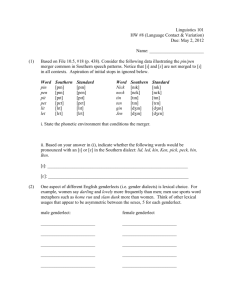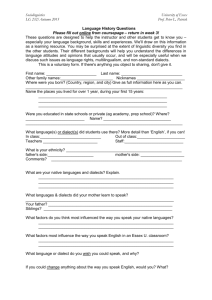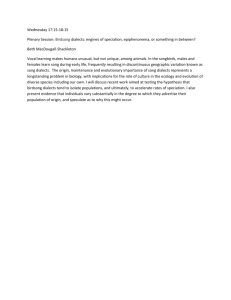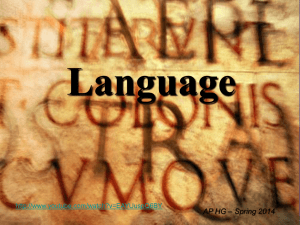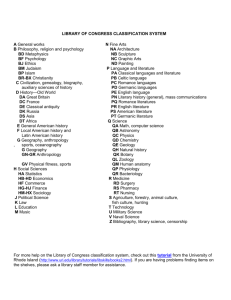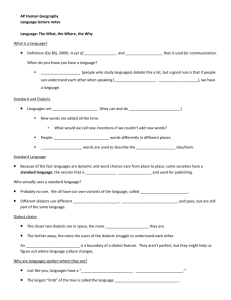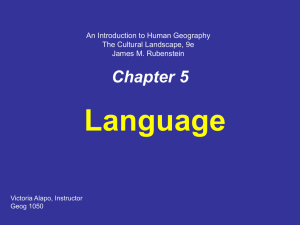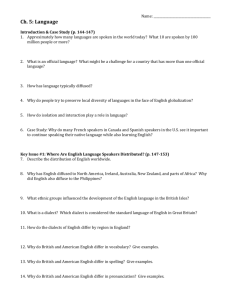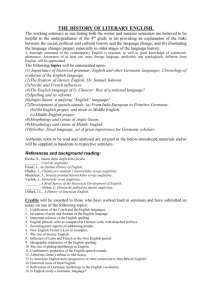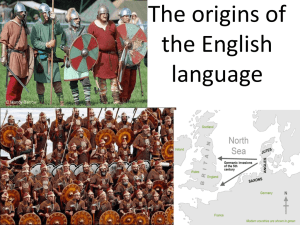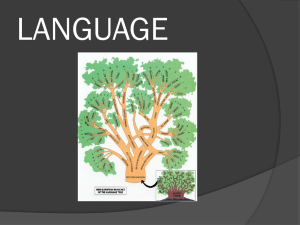class7atxt.ppt
advertisement
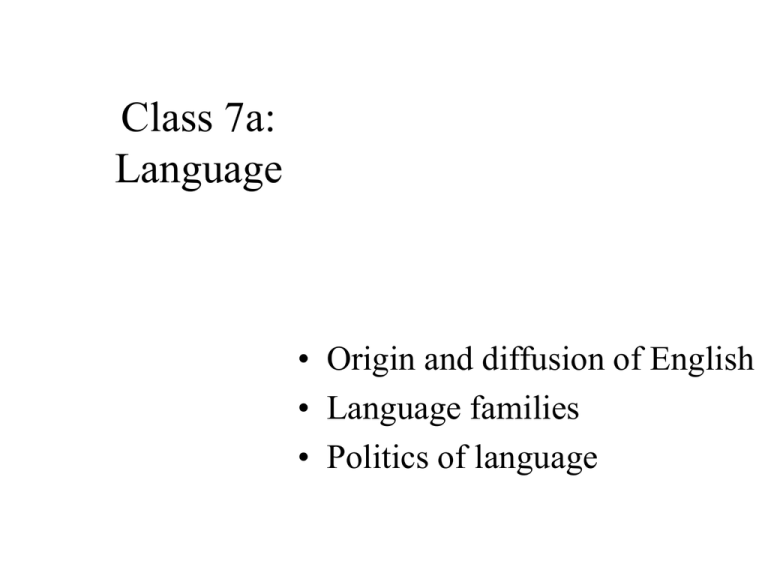
Class 7a: Language • Origin and diffusion of English • Language families • Politics of language What is a language? • • • • Organized system of speech Mutual comprehension of sounds Allows transmission of culture Cause and symbol of cultural differentiation • Vocabulary, pronunciation, syntax, word meaning World languages • • • • Estimated 6000-7000 languages But only 2000-3000 written Half the world speaks only 8 Only 300 are safe from extinction Geography of language • Language depends on migration • Diffusion of language – Spread by speakers – Picked up by others • Language splitting • Pidgins and creoles Geography of English • • • • • History of invasions Original inhabitants: Celts 450 AD: Angles, Jutes, Saxons 1066 AD: Normans Germanic, French, and Latinate bases Geography of English • • • • • Diffused via colonization Now official language of 60 countries 1.5 billion speakers Lingua franca Several distinct dialects Dialects • Variation of a language • Different vocabulary, spelling, and pronunciation • Vary by place, ethnicity, class • Usually still understandable American vs. British Dialects • New words, new inventions – Moose, racoon, canoe – Elevator/lift, flashlight/torch • Deliberate new spellings – Color/colour, defense/defence • Changes in pronunciation (“a,” “r”) American Dialects • Based on who migrated where and contact with England – New England – Mid-Atlantic – South • Midwestern English standard dialect Language classification • Language families – Languages with a common, prehistoric origin • 20 major families – Indo-European, Sino-Tibetan, AfroAsiatic – Indo-European languages cover half the world Language classification • Branches or subfamilies – Common ancestor within thousands of years – Germanic, Armenian, Celtic • Not mutually intelligible • But similar sounds, grammar, words Language classification • Groups within branches – West Germanic, Indic, East Slavic and Baltic • More recent common origin • Few grammar, vocab differences Politics of language • Language as key to culture • Official languages • Bilingualism or multilingualism – Belgium vs. Switzerland Belgium • Walloons (French) 45% – Historically upper/ruling class • Flemish (Dutch) 55% • Two regions governed separately • Brussels (capital) bilingual Switzerland • Four official languages • German (65%), French (18%), Italian (12%), Romansh (1%) • Strong local government (cantons)
